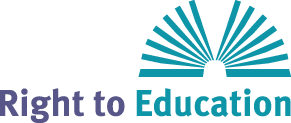According to UNESCO, 264 million children and youth are still out of school around the world, and this is only accounting for the primary (61 million) and secondary school (203 million) age population. In particular, the poorest and most marginalised, including ethnic and religious minorities, persons with disabilities, girls, and populations experiencing conflict, are often systematically unable to access and complete a full cycle of quality education. The first volume of NORRAG Special Issue (NSI) is dedicated to examining international frameworks and national policy as well as the challenges of fulfilling the right to education in practice.
The inaugural issue of NSI on the Right to Education Movements and Policies: Promises and Realities aims to highlight the global and national level experience and perspective on guaranteeing the right to education, as outlined in international frameworks, national constitutions, legislation, and policy, when creating the required administrative structures to ensure that the right is respected, protected, and fulfilled for all.
The Issue is divided into six parts, each focusing on a specific theme of right to education policy and practice. The first part includes an article written by RTE staff on The Role of Court Decisions in the Realisation of the Right to Education, which draws on RTE's background paper on accountability for the GEM Report 2017-8.
Education is a fundamental human right under international law. While it should be a right that everyone is entitled to, migrants face multiple challenges in the enjoyment of their right to education.
In the present report, the Special Rapporteur aims to understand these challenges and considers the de facto and de jure situation of the right to education of migrants around the world. Through an analysis of international and regional legal frameworks and more than 500 relevant documents authored by non-governmental organizations (NGOs) and United Nations bodies, the report presents its major findings in terms of the 4As framework for the right to education: availability, accessibility, acceptability and adaptability, as well as in terms of cross-cutting issues related to identity.
The report identifies key issues to ensuring the right to education of migrants, including the capacities of public educational institutions, and challenges migrants face in accessing educational facilities and quality educational opportunities that take into account the specific needs of migrant groups.
The report proposes key recommendations to improve the protection and guarantee the full enjoyment by migrants of their right to education through the implementation of the 4As framework for the right to education.
